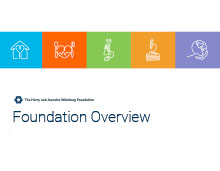One year ago today, wildfires devastated the island of Maui, killing over 100 people; displacing thousands; causing $5.5 billion in damages; and destroying the historic district of Lahaina and over 2,200 homes, businesses, and community spaces.
The Weinberg Foundation’s immediate response to this tragedy focused on physical and mental health needs, as well as starting to rebuild affected communities. To that end, a number of local partners have provided food and essential supplies, temporary housing for those displaced, legal assistance, and mental health care.
While the people of Maui continue striving to recover, they are also contending with unstable housing, rising costs, barriers to securing assistance, extensive trauma, and concerns about future fires. The Foundation remains committed to supporting long-term recovery and resilience and is guided by three overarching priorities: (1) ensuring the community’s goals and vision for the future remain front and center; (2) lifting up approaches specifically tailored to the diverse cultures of Lahaina; and (3) strengthening ongoing collaborative response efforts.
The road to recovery is long, but several grassroots organizations are demonstrating that the people who call Maui home are critical guides on the path forward, leading the way to ensure the safety, stability, and well-being of the island’s diverse communities today — and casting a vision for restoring Lahaina to a place where land and people may flourish once more.
“Community leaders are showing the past offers a blueprint for recovery and restoration,” said Ian Simoy, a program officer who supports the Foundation’s grantmaking in Hawaiʻi. “They are turning to the history of Lahaina as a place of abundance as they work to rebuild in ways that restore and care for the land and community — now and for generations to come.”
Below are the community-led organizations Weinberg has funded to support ongoing disaster-relief and recovery efforts.
“These organizations and initiatives are led by people already firmly rooted in and trusted by their community,” said Marisa Hayase, who leads the Foundation’s grantmaking in Hawaiʻi. “In the wake of the fires, they provided immediate care to those around them without hesitation, and they will continue to be here for the long-term work ahead. We are proud to be among their supporters and partners.”
Addressing basic needs for today and the future
- Hawaiʻi Farmers United Foundation: This nonprofit supports the rights of farmers, ranchers, and fishers to create and sustain vibrant and prosperous agricultural communities to benefit the entire state. It has provided immediate relief for families, farmers, and ranchers who cultivate the land and feed the community, in addition to helping implement programs focused on training farmers, using Hawaiian agricultural practices, improving soil health, and supporting food-distribution hubs in Lahaina and across Hawaiʻi.
- Holani Hana: Led by Native Hawaiians committed to Indigenous practices, this Maui nonprofit leads culturally appropriate responses to the fires, guided by a commitment to the land and people of the island. Holani Hana also supports collaborative response efforts among funders and other stakeholders, as well as capacity building for community-led organizations.
- Maui Hui Malama: This Maui-based nonprofit — which offers opportunities to help youth overcome barriers to education, careers, and cultural goals — has provided aid for food, gas, and other basic needs for families displaced by the fires. It also regularly hosts events to bring together these families to share a meal and be in community, and support parents by engaging their children in activities.
- Nā Kiaʻi O Maui: Launched the day of the wildfires, this community-led Native Hawaiian nonprofit has supported families evicted from their temporary housing in hotels and still struggling to secure a place to live. During the past year, it has helped over 55,000 individuals and distributed more than 200 tons of food and supplies across Maui.
Meeting the needs of diverse communities
Local organizations are helping Maui’s immigrant communities — from Filipino to Mexican to Micronesian — access services and support, filling gaps that larger mainland nonprofits have been unable or unequipped to address.
- Roots Reborn:This Maui-based community hub has offered multilingual translation services and support for immigrants to apply for housing and food assistance, file insurance claims, and access other resources for which they are eligible.
- Tagnawa: This nonprofit has provided translation services for Filipino individuals and families affected by the wildfires, helped them secure disaster-relief financial assistance, and offered other critical support, including culturally appropriate community events and resources to support mental health care and recovery.
- We Are Oceania: When Maui residents from Micronesia, the Marshall Islands, and Palau became eligible for federal aid, this nonprofit helped these Pacific Islander communities apply for financial and other assistance by the May 31 deadline this year.
Protecting and preserving community ownership and vision
Without intervention, Lahaina homeowners could lose their land during the long process of rebuilding, and the area could see an estimated 20% turnover in ownership of residential properties. The Lahaina Community Land Trust strives to ensure local lands remain in community hands and to protect residents from further displacement that would force them to leave their home island. With county and private funding, the nonprofit is acquiring and holding lands to make them available for long-term affordable housing, economic opportunities that benefit the land and its people, and conservation efforts.
Despite the ongoing challenges, Maui’s communities remain resilient and strong. The Foundation will continue to work with local and state partners to support the recovery and restoration of Lahaina and its residents in the months and years ahead.




